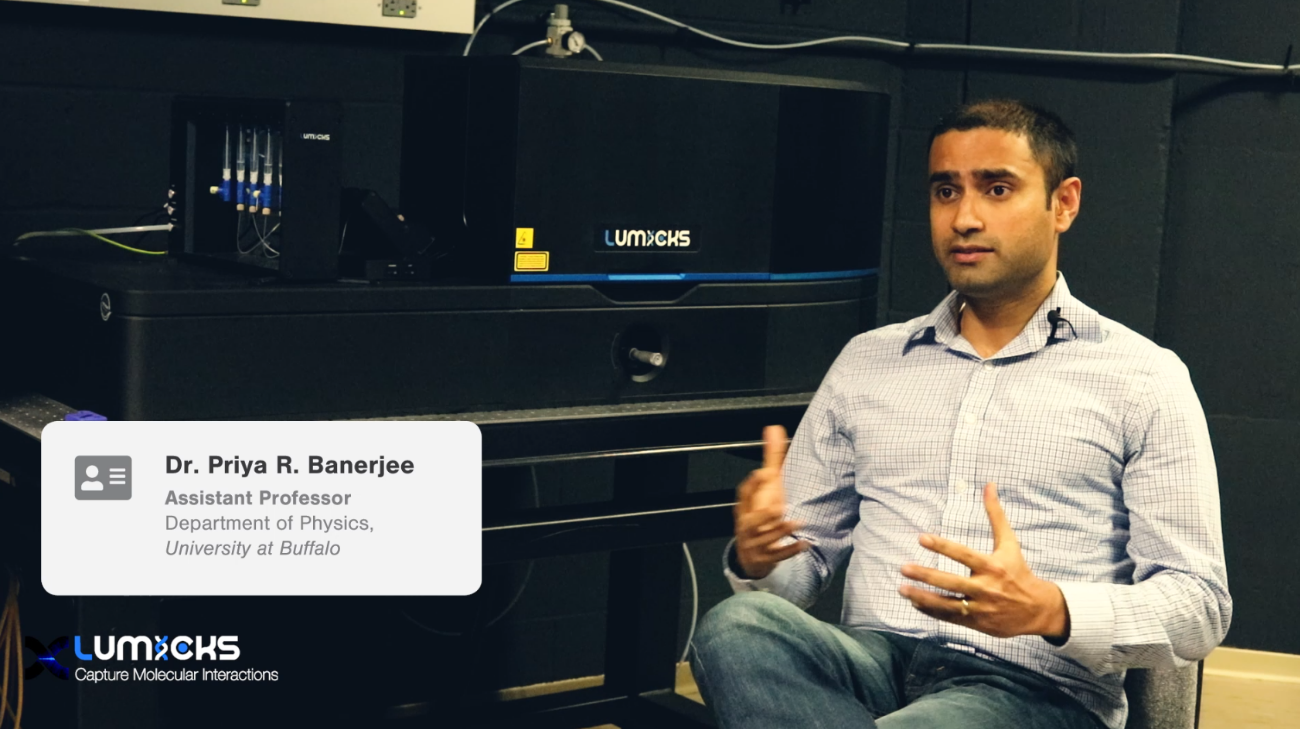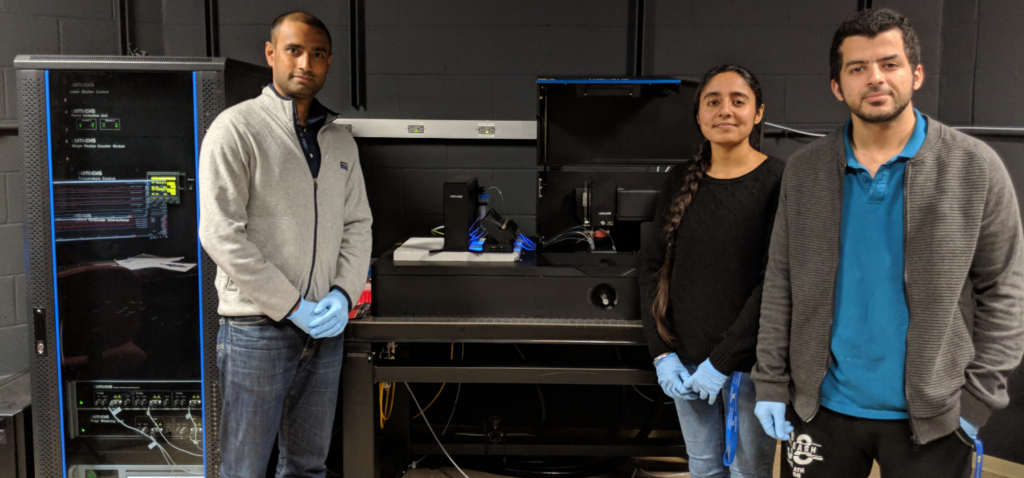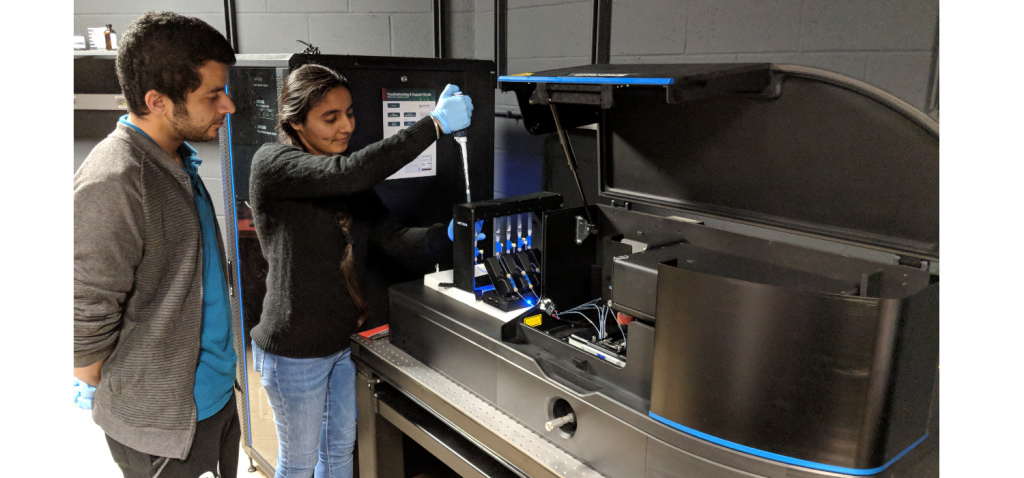LUMICKS successfully installed a C-Trap® optical tweezers–fluorescence microscopy system in the lab of Assistant Professor Priya Banerjee at the University at Buffalo.
The group of Dr. Banerjee will use the C-Trap to investigate the structural dynamics and phase behavior of intrinsically disordered proteins (IDPs). IDPs are characterized by conformational plasticity and structural heterogeneity, which makes it necessary to study one molecule at a time with high temporal and spatial resolution. IDPs also phase separate into liquid-like droplets that function as intracellular compartments without membranes containing a large number of proteins and RNA molecules. This phenomenon – also known as liquid phase condensation – is not well understood and its abnormal behavior underlies several amyloidogenesis and neurodegenerative disorders, among others.
The resulting measurements will be critical in deciphering the molecular functions of the disordered proteome and mapping the mechanism of operation of IDPs. We wish Dr. Banerjee and his team the best of luck with their research and the C-Trap!
“We think that the application of C-Trap – which offers a truly correlative single-molecule force spectroscopy and fluorescence microscopy – will enable us to interrogate how single-molecule properties of individual IDP chains are correlated with their phase behavior.”
Dr. Priya Banerjee, University at Buffalo
Want to discover what the C-Trap® can do for your research? Meet our application scientists at one of the conferences we are attending, download the brochure or contact us for a demo or a quote.
Photo: From left to right, Ibraheem Alshareedahm, Taran Kaur, and Priya Banerjee next to their
C-Trap Optical Tweezers – Fluorescence Microscopy system




